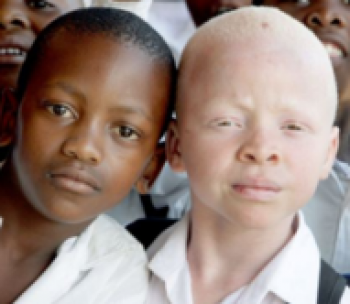Serendip is an independent site partnering with faculty at multiple colleges and universities around the world. Happy exploring!
Introduction to Genetics – Similarities and Differences between Family Members

In this analysis and discussion activity, students learn that different versions of a gene give the instructions for making different versions of a protein which can result in different characteristics.
Additional questions guide students as they review how genes are transmitted from parents to offspring by the processes of meiosis and fertilization.
Then, students analyze several examples that illustrate how inheritance of genes can result in similarities and differences between family members.
Concepts covered include Punnett squares, dominant and recessive alleles, incomplete dominance, and polygenic inheritance. These concepts are reinforced in an optional final review page.
The Student Handout is available in the first two attached files and as a Google doc designed for use in online instruction and distance learning. The Teacher Notes, available in the last two attached files, provide instructional suggestions and background information and explain how this activity is aligned with the Next Generation Science Standards.
| Attachment | Size |
|---|---|
| genetics family resemblance SH.docx | 1.54 MB |
| genetics family resemblance SH.pdf | 347.3 KB |
| genetics family resemblance TN.docx | 698.15 KB |
| genetics family resemblance TN.pdf | 450.42 KB |











Comments
2025 revision
In the Student Handout, questions and explanations have been clarified. The Teacher Notes have been reorganized and revised for greater clarity.
Ingrid
2021 revision
The Student Handout has been reorganized and revised to focus on the anchoring phenomenon of similarities and differences in the characteristics of family members and the driving question of how genes contribute to these similarities and differences. Questions, figures, and explanations guide students to an increasingly sophisticated understanding of the answers to the driving question.
Ingrid
errors?
Isn't there more than one gene responsible for pigmentation? This seems really simplified. Also on the first link, the first page shows Aa as the genotype for albinism. In your simplified explanation shouldn't it be aa?
Corrections and explanations
You are absolutely correct about both points. The first sentence on the top of page 5 of the Student Handout is "The many different skin colors that people inherit are caused by multiple alleles of multiple genes." The Teacher Notes suggest that, after question 16, you may want to ask your students whether the two alleles of the gene they have been analyzing could cause all the different skin colors that different people have. A discussion of this question would make a good transition to the next section.
Unfortunately, my word processor capitalizes words sometimes even when I don't want it to, and I didn't catch the erroneous capitalization of aa. I am working on a revision which corrects this error. I will post it later today.
Thank you for your comments,
Ingrid
Revised version posted on January 6
The revised version has been posted.
Ingrid
Post new comment